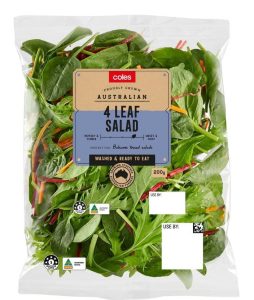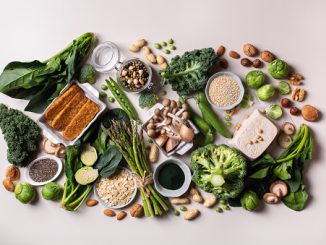This article will be based on the March 2025 emergency recall taken by Australian major supermarkets after Shiga toxin-producing E. coli (STEC) was detected in ready-to-eat salads. While mainstream news mainly reported food safety, the changing psychology of consumers also needs to be noted. Many people complained about their experience on social media platforms such as Reddit and Rednote, so when “healthy salad” becomes “health threat”, is there a crisis of confidence behind the “healthy” label?

Story Topic & Angle
The article will describe how the recall triggered public concern and anxiety from the perspective of ordinary consumers exposed to this crisis, combined with analysis from health communication expert of the complexity of information dissemination.
The story angle will focus on exploring the emotional and behavioural impact of the recall on everyday consumers. In the digital age, when food safety alerts are disseminated in the form of “emails” or “social media posts”, how can a health notice create collective fear and anxiety?
Genre
This story will be written as a feature article, combining personal storytelling and expert insights.
Rationality and Importance
Although “emergency food recall” is a public health strategy, media coverage is often focused on factual reporting instead of the impact on individuals. To minimise the phenomenon of “information anxiety” on the internet, this article chooses to take a humanistic angle for narration. Moreover, this topic is also consistent with the news value of timeliness, human interest and impact.
Publication & Audience
This article is scheduled for publication in the Sydney Morning Herald (SMH), a leading Australian news service. First, as the majority of the interviewees live in Sydney, choosing this media outlet is more geographically relevant for readers to have an immersive and targeted experience. Second, SMH regularly updates feature stories related to the humanities and health, which makes it a suitable platform for publication.
The target audience includes readers interested in personal and public health, psychology, etc. They could also be supermarket consumers, fitness/weight loss people, students and parents who have been impacted due to this incident.
Sources of Information
- Human Resources:
- Consumers who had purchased recalled salads, such as students and parents of newborns (see image below)

-
- Interview Dr Olaf Werder, a health communication expert, about the impact of information dissemination.
- Interview consumer behaviour expert Nitika Garg (who was recently interviewed by the ABC), about the psychological impact on the consumer base.
- Other Resources
- FSANZ’s official recall notices
- Coverage of this recall incident by major media outlets, such as ABC
- Articles and studies on information anxiety and consumer behaviour in the context of food safety incidents, such as the organic example.
Multimedia, Hypertext and Interactivity
This article will include a salad image and an infographic of the recall timeline, adding embedded social media comments and hyperlinks of the corresponding keywords to enrich the content. As the Sydney Morning Herald includes a comment section, this article will also direct readers to post their opinions at the end to enhance interactivity.





Your topic is very newsworthy and well-structured. Since you are going to write a feature story, my suggestion is that you could consider opening with a true story from a consumer or yourself who has experienced this event, to add to the anxiety and confusion.
For interviewees, consider adding the perspective of a hypermarket spokesperson or logistics staff could enrich the supply chain angle.
The interface design and online writing skills are also carefully considered, and the overall planning is spot on. One small suggestion is to set hyperlinks to open in a new tab to improve the reading experience.